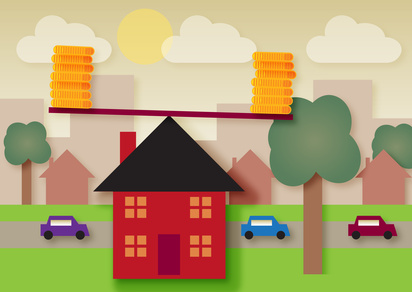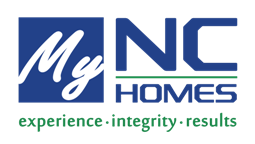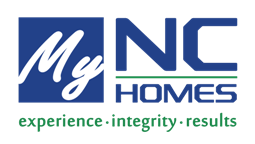Should You Sell Your Home Or Rent It Out?
Posted by Larry Tollen on Tuesday, November 24th, 2015 at 5:21pm.
 Should you sell your home or rent it out? This is a question you may be considering if you need to move out of your home. As always, there are pros and cons to both options. Here are some of the factors that you’ll need to weigh as you consider your decision.
Should you sell your home or rent it out? This is a question you may be considering if you need to move out of your home. As always, there are pros and cons to both options. Here are some of the factors that you’ll need to weigh as you consider your decision.
The Real Estate Market
Should You Sell Your Home or Rent it Out | My NC Homes | Chapel Hill Durham NCRight now, market conditions are much more favorable for both sellers and landlords than they were two years ago. Home inventories are low in relation to the number of buyers, and rental demand is also on the rise. The Raleigh area is experiencing aggressive growth that is expected to continue for some time. However, these are general statements about the region at large. You will need to make your decision based on the specific market conditions in your home’s price range and in your neighborhood.
To get a good idea of how your home will fare under current market conditions, you’ll need to look at an analysis of similar homes in each scenario. I’m going to be direct here—this is where our expertise comes in. Between Andrew and I, we have closed nearly 2,000 real estate transactions. Additionally, Andrew has the experience of having done 1,000+/- real estate appraisals. Between us we have received both the Strategic Pricing and Listing Specialist designation. We know that pricing a home correctly is absolutely critical. I have walked away from situations where sellers were not willing to face objective reality about the true market value of their homes.
Contrary to popular belief, forecasting market prices does not require any magic or guesswork, but it does require the experience of a trained professional. The same degree of objectivity is required whether you are selling or renting out your home.
Your Financial Goals and Property Taxes
In short, selling your home will allow you to free up your cash, whereas renting out your home will allow you to build equity and possibly generate additional positive cash flow. You get to benefit from having a tenant pay down your mortgage for you while your property continues to appreciate (as houses tend to do over the long haul). Should you decide to go this route, you have to decide how much financial risk you are comfortable taking on. You will need to talk to a mortgage lender to find out if you are financially capable of getting another mortgage without first selling your current home. You’ll also have to think carefully about how long you can carry two mortgage payments during periods when your rental home is vacant.
There are a number of variables that will change your tax liability when you convert a primary residence to a rental property. Rental income is taxable, but you will be able to deduct a number of expenses that you cannot deduct on your primary residence, such as depreciation (taken over 27.5 years), repairs and travel expenses (including your hotel bill if you live far enough away that a return trip to your property requires you to stay overnight). When you become a landlord, you are a business owner and have the ability to deduct other expenses associated with running your business.
Are You Ready To Become A Landlord?
Being a landlord is a package deal. While there are a number of potential benefits to renting your home, those benefits come at a price. The worst-case scenario is getting a bad tenant—one who always has an excuse for paying the rent late, does not take good care of the property and/or generates complaints from the neighbors. The wrong tenant can cause tens of thousands of dollars (or more) in damages to a property by failing to keep it clean or neglecting to inform you about a serious problem (such as a leaking roof). This situation is usually avoidable if you hire a professional property manager with a good tenant screening process, but you’ll still have to factor in the management cost. If you only own one single-family dwelling, you can usually expect to pay 10% of the gross rent.
Finally, keep in mind that when you live in your home, you can choose to forgo fixing something in order to save money. When you’re a landlord, you no longer have that option—so you’ll have to make sure you have some cash in reserve to cover unexpected repairs.
Renting out homes became more popular during the recent recession, just because home prices were low and selling meant giving equity away for pennies on the dollar. In addition, many people simply could not sell because they were underwater on their mortgages. Economic conditions kept many Triangle homeowners from selling two to three years ago, but for many of those same homeowners, the picture has changed. In this market, renting out your home should only be a consideration if real estate investment is a component of your personal financial strategy.
If you’re planning to put your home on the market this spring, now is the time to get the ball rolling. Give us a call today at 919-659-5173 or send us a message online at your convenience.
 My NC Homes is your #1 source for all of your real estate needs in Cary, Chapel Hill, and Durham areas. Get in touch with us online or by phone at 919-659-6173 today. We have over 25 years of experience by helping people in the Research Triangle reach their real estate goals.
My NC Homes is your #1 source for all of your real estate needs in Cary, Chapel Hill, and Durham areas. Get in touch with us online or by phone at 919-659-6173 today. We have over 25 years of experience by helping people in the Research Triangle reach their real estate goals.
